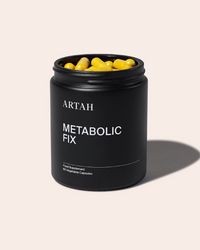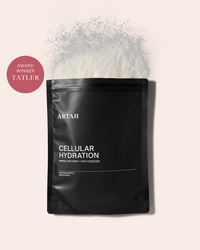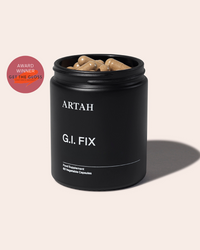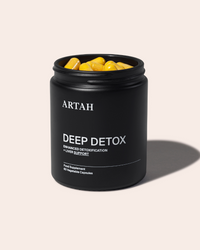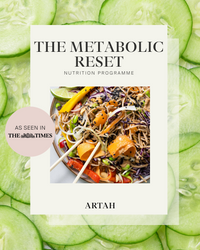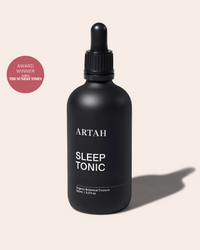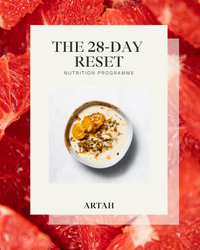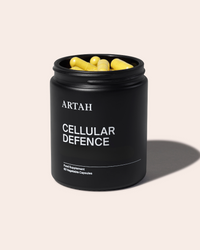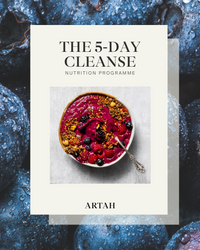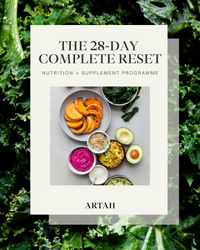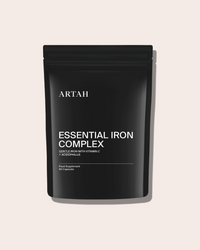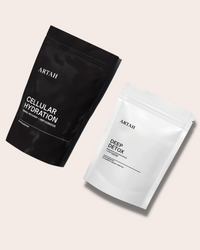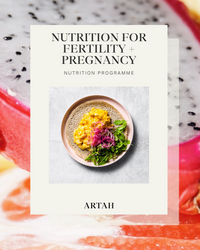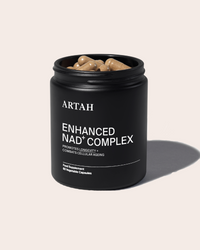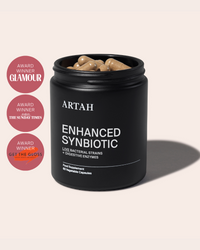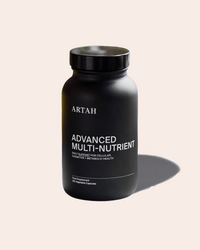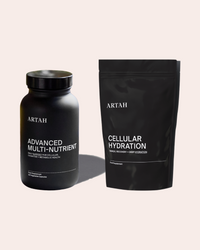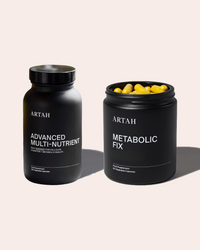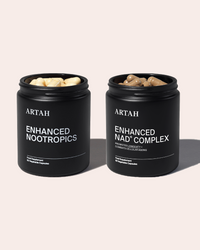Biohacking Is A Thing
Here are 4 ways to get started.
Biohacking is all the rage. It focuses on improving performance, health, cognitive function and overall wellbeing through strategies aimed at optimising your metabolism. Whilst some people are taking it to the extreme, the basic principles of biohacking like meditation, intermittent fasting, hydrotherapy, and detoxification have been around since ancient times. At its core, biohacking uses an integrated approach to improve energy and wellbeing by thinking in a more systemic way and using the ‘in the moment’ biofeedback our bodies are giving us to adjust and adapt accordingly. A lot of the serious biohackers rely on data and use wearables like heart rate trackers, continuous glucose monitors and sleep trackers to help them see the changes that accompany certain interventions. But, to be honest, we’re not that fanatical, and there are a lot of biohacks you can do right now, without expensive tech, that can help you start to feel better quickly. The latest wave of biohacking strategies are aimed at improving energy production, regulating blood sugar and boosting brain health. Here are some of our favourites.
Hack your blood sugar
Managing blood sugar is one of the biggest areas of focus in the biohacking world, and we’re here for it. Ideally, we’d be able to eat in a way that prevents steep peaks and troughs of blood sugar, but when we’re not always in control of what we eat (or when we just need that chocolate croissant on the weekend), it’s good to have a hack to help blunt the spike in blood sugar and combat its subsequent effects. Studies have shown that ingesting 2 tbsp of apple cider vinegar before a meal rich in carbohydrates may reduce the post-prandial glucose spike by up to 30%. Even more effective is movement. Just 5 minutes of brisk walking or movement after a meal can help control glucose spikes. If you’ve been extra indulgent, aim to engage the larger muscle groups with more vigorous movement like squat jumps.
Hack your mind
Nootropics are a new class of supplements and interventions designed to enhance brain function. From memory and focus to mood and neuroprotection, these are the vitamins, minerals, botanicals, and phytonutrients that support specific benefits within your brain. Technically, a LOT of nutrients fall into this category, but for the purpose of biohacking, we’ll focus on methylation. Methylation is a process that happens continuously in the body and is responsible for a vast array of biological functions like detoxification, DNA expression, hormone regulation and neurotransmitter production. It sounds complicated but just think of it as a transfer of atoms between substances. When it comes to neurotransmitters, robust methylation is vital to optimally function – it helps make serotonin, dopamine, adrenaline, norepinephrine, and melatonin, and it’s also involved in their transport. Vitamin B6, B12, Methylfolate and Magnesium are critical for methylation. When it comes to diet, seek out dark leafy greens, legumes, good quality meat, fish, eggs, nuts and seeds. Anything that increases oxidative stress will strain methylation, which means processed foods, high sugar, and excess alcohol are on the list of things to watch, alongside environmental disruptors like parabens, food additives, smoking, pesticides, and herbicides. Enhanced Nootropics is our cognitive blend and is rich in active B Vitamins, Magnesium, 5 HTP and adaptogenic ashwagandha to help support methylation, cortisol, and mood.
Hack your metabolism
Maintaining metabolic flexibility is one of the ultimate goals of biohacking, which is why intermittent fasting and time-restricted eating practices are pillars of the practice. When done correctly, IF can help improve glucose control, insulin sensitivity, energy production, and reduce visceral fat and inflammation. What’s the difference? Time-restricted eating is anything that’s less than 24 hours. The most popular is the 16:8, where the ‘fasting’ window is 16 hours and the ‘feeding’ window is 8 hours. This is great for beginners and easy to implement in the workplace or alongside normal life when a more intensive fast could feel more disruptive. IF is anything that’s 24 hours or more, for example, the OMAD (one meal a day) or alternate day eating. These types of fasts are suited to individuals who have built up fasting tolerance through practices like time-restricted eating, or who are already quite metabolically flexible with stable blood sugar. A hybrid of the two is the fasting-mimicking diet (FMD), which employs some caloric reduction with time-restricted eating patterns. This type of fast will give you the benefits of fasting without the restriction or low energy that often accompanies more in-depth fasts. If you’re looking for some guidance on where to start, try The 5 Day Cleanse, which follows a FMD protocol and has two levels to try depending on your experience.
Hack your morning coffee
Coffee is one of the original nootropics, with numerous studies showing that it improves cognitive function, enhances memory, and increases alertness. But, coffee still has its side effects. Too much coffee can increase cortisol, headaches, anxiety, and insomnia, and can also lead to spikes and crashes in blood sugar for individuals who already find it more challenging to manage blood glucose. It can also deplete magnesium, one of our most important electrolytes. Some of us thrive on caffeine, and some of us love caffeine, but can also become anxious, edgy, and feel like our nerves are frayed when we drink it. If you’re in the latter group, it’s important to look at caffeine’s potential role in your mood and stress response. Here are two ways to improve your coffee experience from a metabolic standpoint.
1. Replenish your electrolytes first. For some of us, coffee is in our morning routine even before water. When we wake, we’re dehydrated from the evening, so having coffee on an empty, dehydrated system can cause a noticeable spike in anxiety. Try having at least 500 mls of water first with either a natural electrolyte supplement, like Cellular Hydration, or a pinch of sea salt and fresh lemon before you reach for your favourite brew.
2. Wait until after breakfast. Having coffee with or after food will slow its absorption and reduce the potential impact on the stress response. It will also mean your blood sugar is more stable. Note – if you’re anemic and trying to up your iron, wait a little longer after an iron-rich meal before you have your coffee as caffeine can reduce its absorption.
This article is for educational purposes only and the implementation of the theories and practices discussed is at the sole discretion of the individual. All advice given is not substitute for medical advice, diagnosis, or treatment. If you have any concerns about your health, you should speak with your physician.






